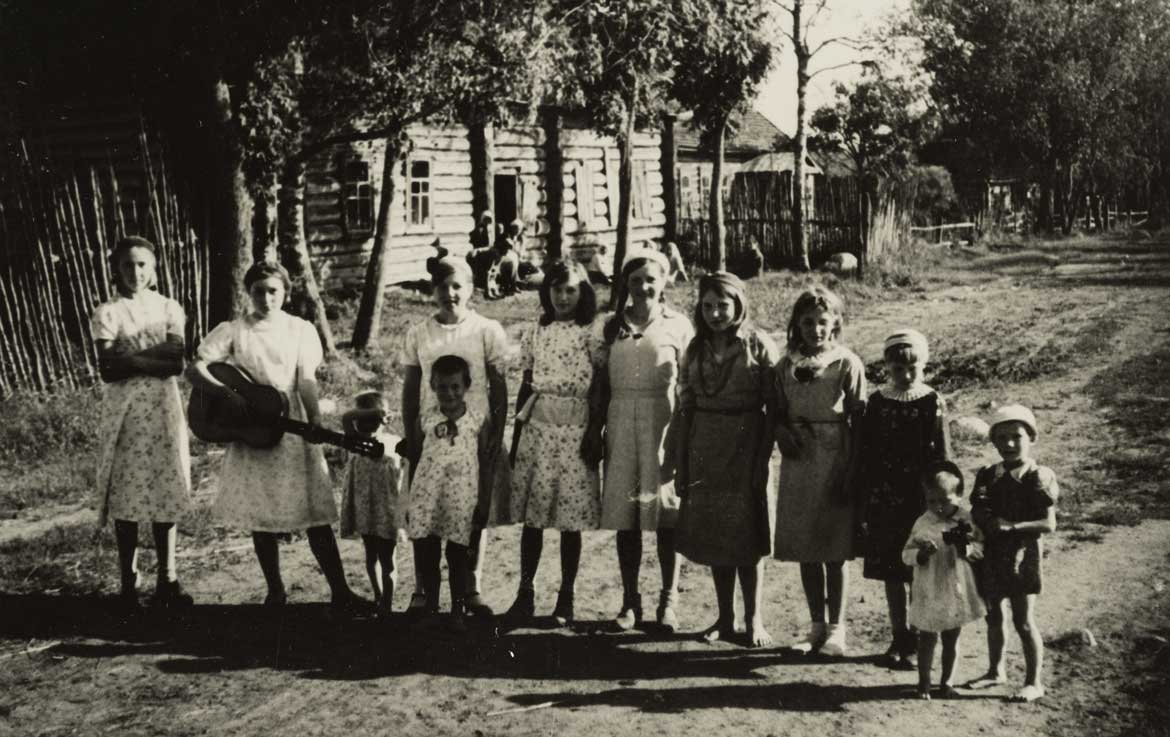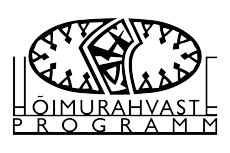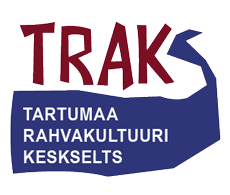Tüttäred, sõzeüeni
(Song while Walking through the Village)
Leanne Barbo and choir
In Votian
Tüttäred, sõzeüeni,
oi, saadu-saadu, selennoi saadu,
lähemmä läpi tšätösi,
läpi lidnaa, linnukkaizõd,
läpi kastarii, kanaizõd!
Tüttäred, sõzeüeni,
ühezä ve’e veämmä,
ühee kaivoo kannatamma,
ühee maa maranajalgad,
ühee põõza’a pupuškad,
laulamma ühezä, lahzõd,
kukumma ühezä, kullad,
kunnõ on kassa kaglallani,
ivus pittšä pihoillani!
Kui saan, marja, muilõ mailõ,
toomud tõisilõ vesile,
siiz en mahza maalta rohta,
õltšikõrtta uulitsalta –
einämüttü on eteepi,
kagrakappa on kalliipi,
miä, ozmud, otavapi.
In English
Girls, my dear sisters,
Let’s walk through under the arms,
Through the town, dear birds,
Through the stronghold, dear hens!
Girls, dear sisters,
Let’s carry water together,
Carriers from the same well,
We, cinquefoils rooted in the same soil,
We, buds of the same bush,
Let’s sing together, dear children,
Let’s chant together, dear ones,
Until braids rest on my neck,
Hair falls long to my waist!
When I, berry, will get to other countries,
When I, bird cherry, to other waters,
I will not be worth the grass on the ground,
A hay straw on the street—
A tuft of hay will be better than me,
A measure of oats will be worth more than me,
I, the golden one, would be cheaper.
Maidens are singing about how they are proudly walking through the village, passing through under each others’ arms. You can sing with your dear friends until your hair is long—hair falling freely down to the waist is a symbol of being unmarried. After the young woman is married, she will be away from her friends. The position of a young married wife is so low in the family that she will not feel herself as beautiful and desirable as she is now.
The beginning of the song refers to the tradition of gulyanie, when girls adorn themselves and gather together durig holidays, walking from one end of the village to another along the main street, catching the villagers’ admiring glances. From time to time, they stop for dancing and circle dances. One of the ways to walk around was holding hands, in procession or in paired procession. Then they walked through under each others’ arms, held up to form gates, a reference to which is made in the first lines of the song. In Narvusi (Kozemkino) area, the faster passing through under the arms was called “the gates of Vironia”, whereas the paired procession was called klutcha. A common refrain of the song is saadu-saadu or saadulmoi, derived from Russian songs (зеленый сад ‘green garden’). The saadulmoi refrain is usually part of the ritual walking through the village, or villages, both during feast days and at weddings.
T Anna Ivanovna, Peen-Rudja (August Ahlquist 1854–1855, SKVR IV3 4651).
M Anna Mitri tütar Frolga naine, 23 a, Mäkkülä (Armas Launis 1906, SKSÄ A 300/36a, ph 29a).

Itšäpäivä (Itsipino) village girls on a Sunday walk. Photo: E. Laid, 1942 (ERM Fk 1009:296).





